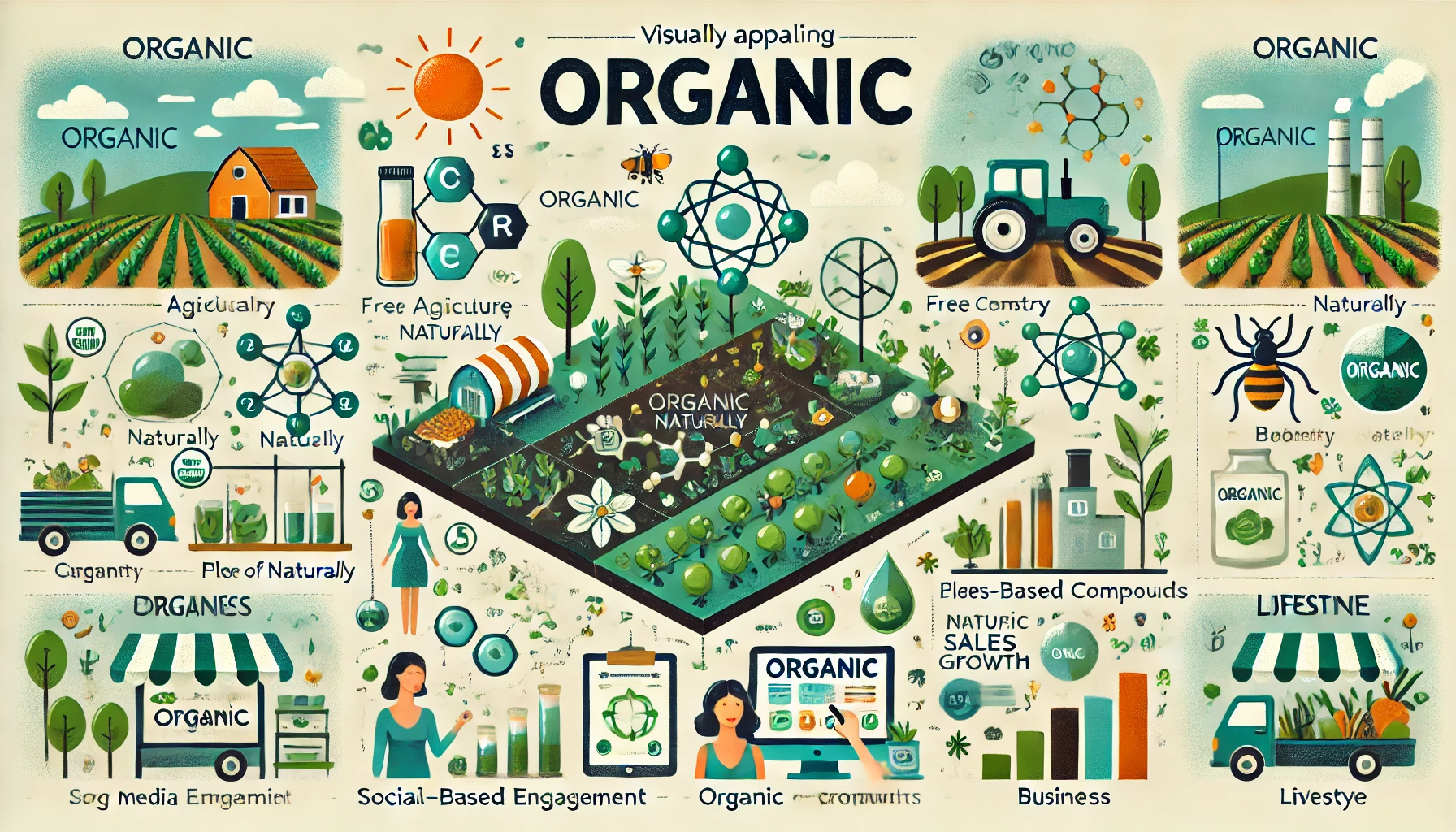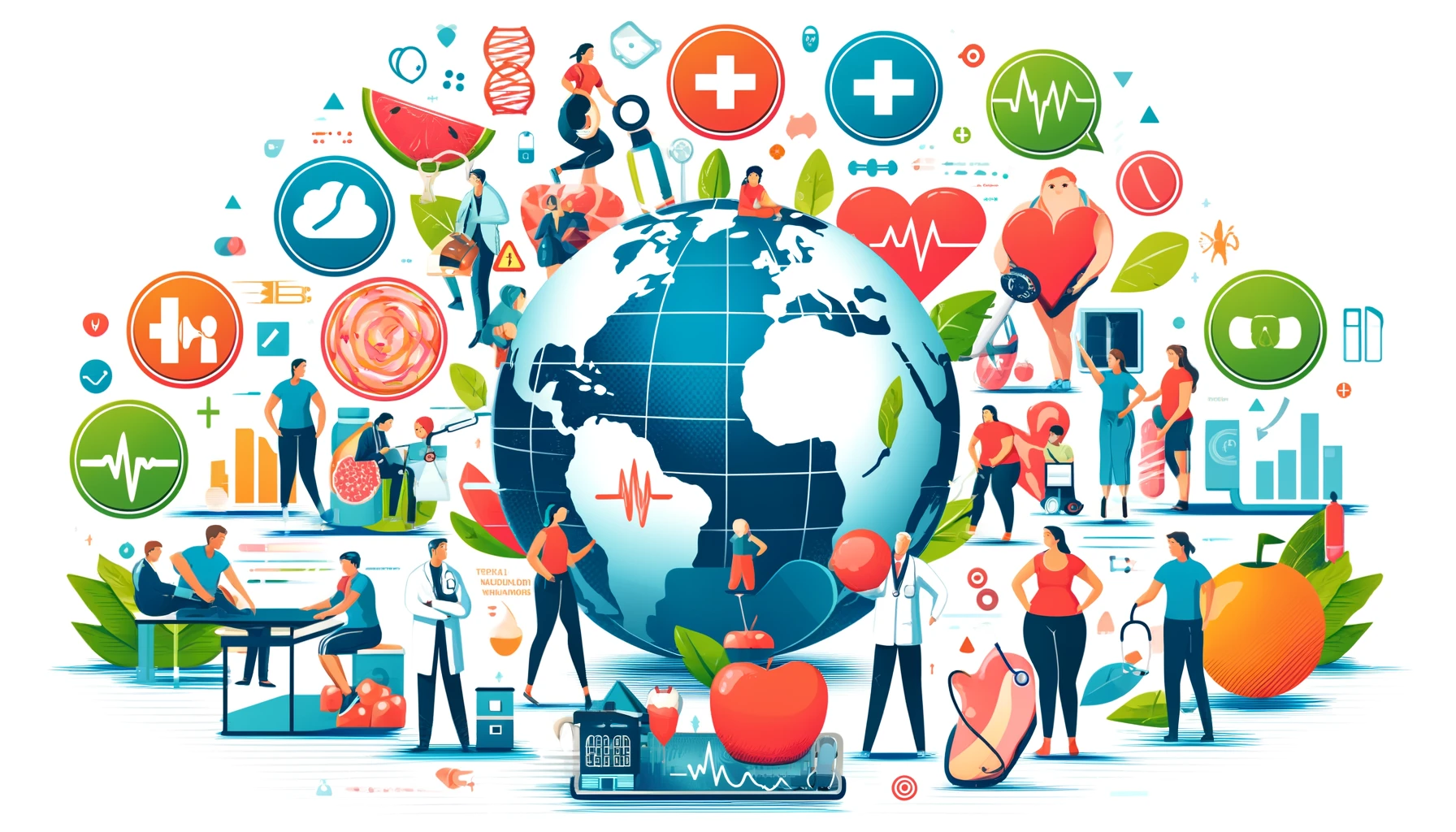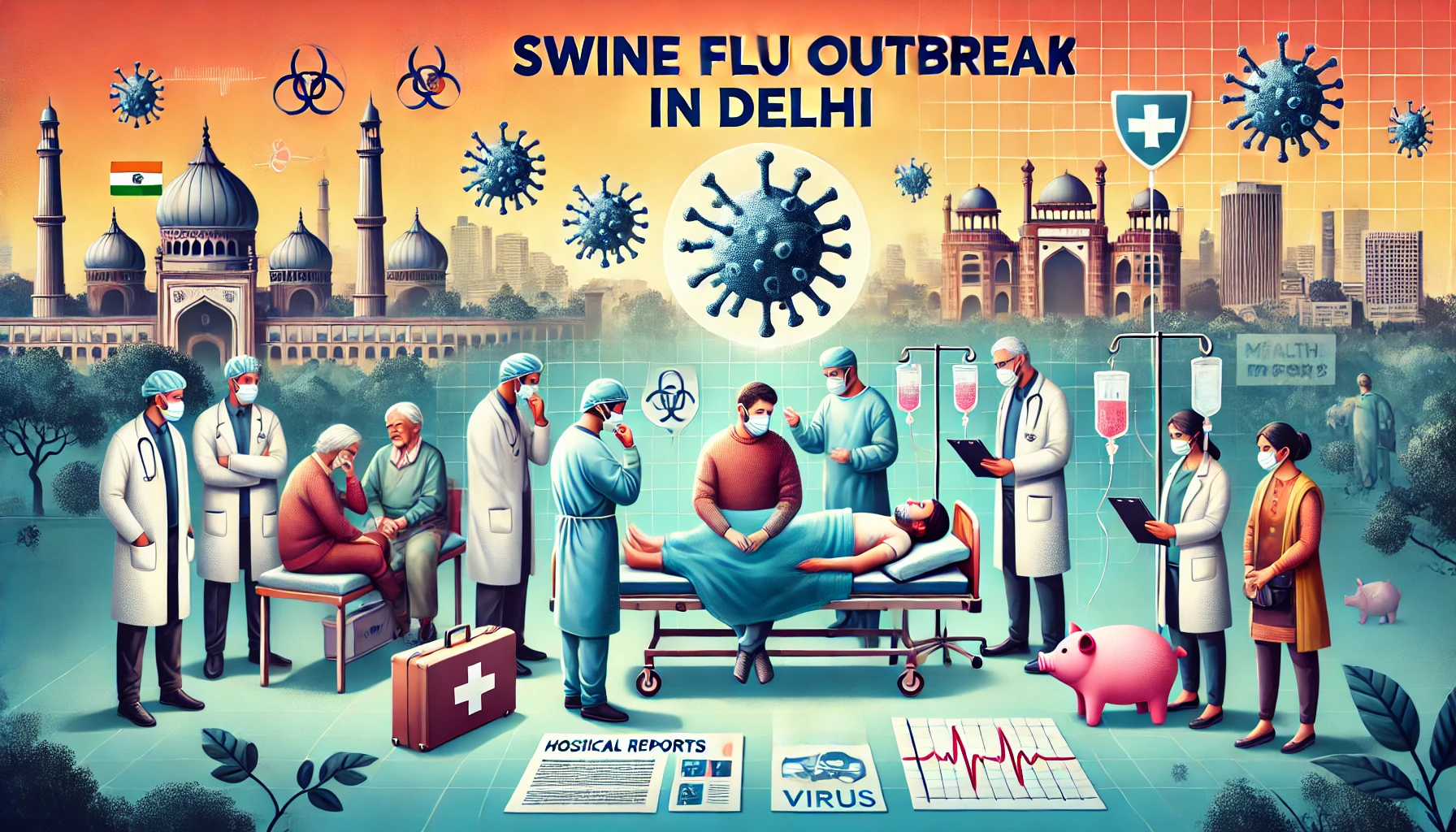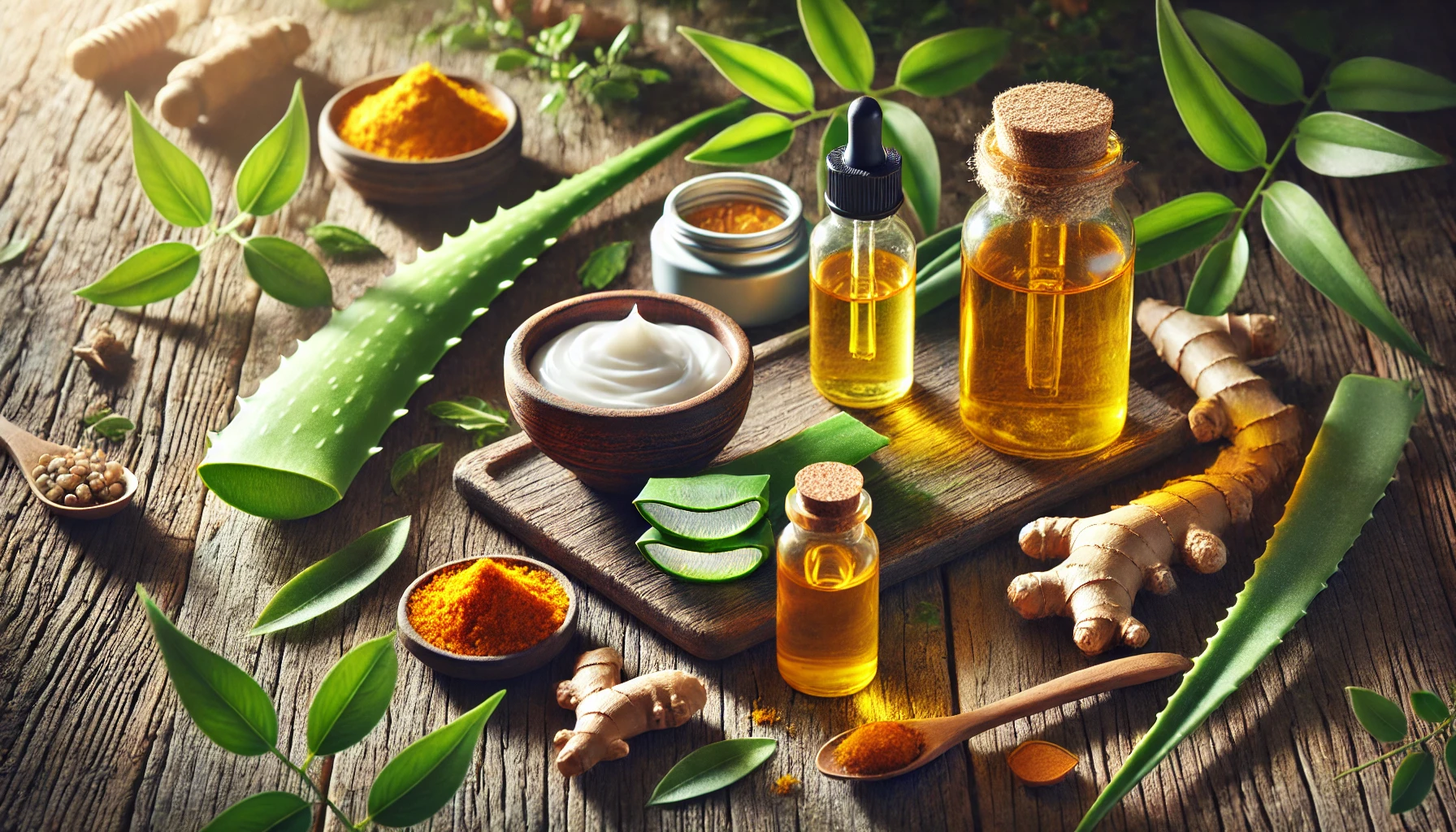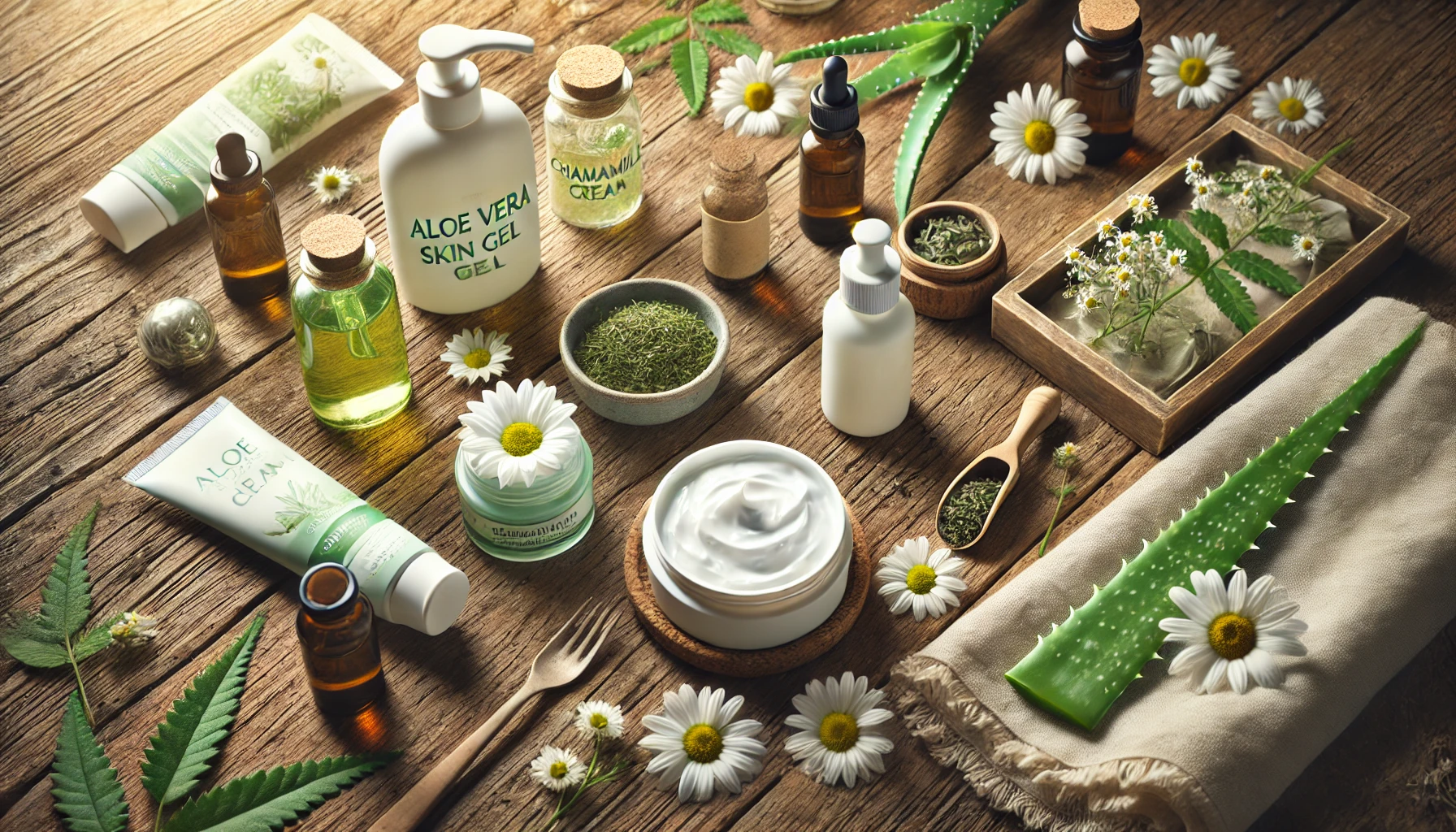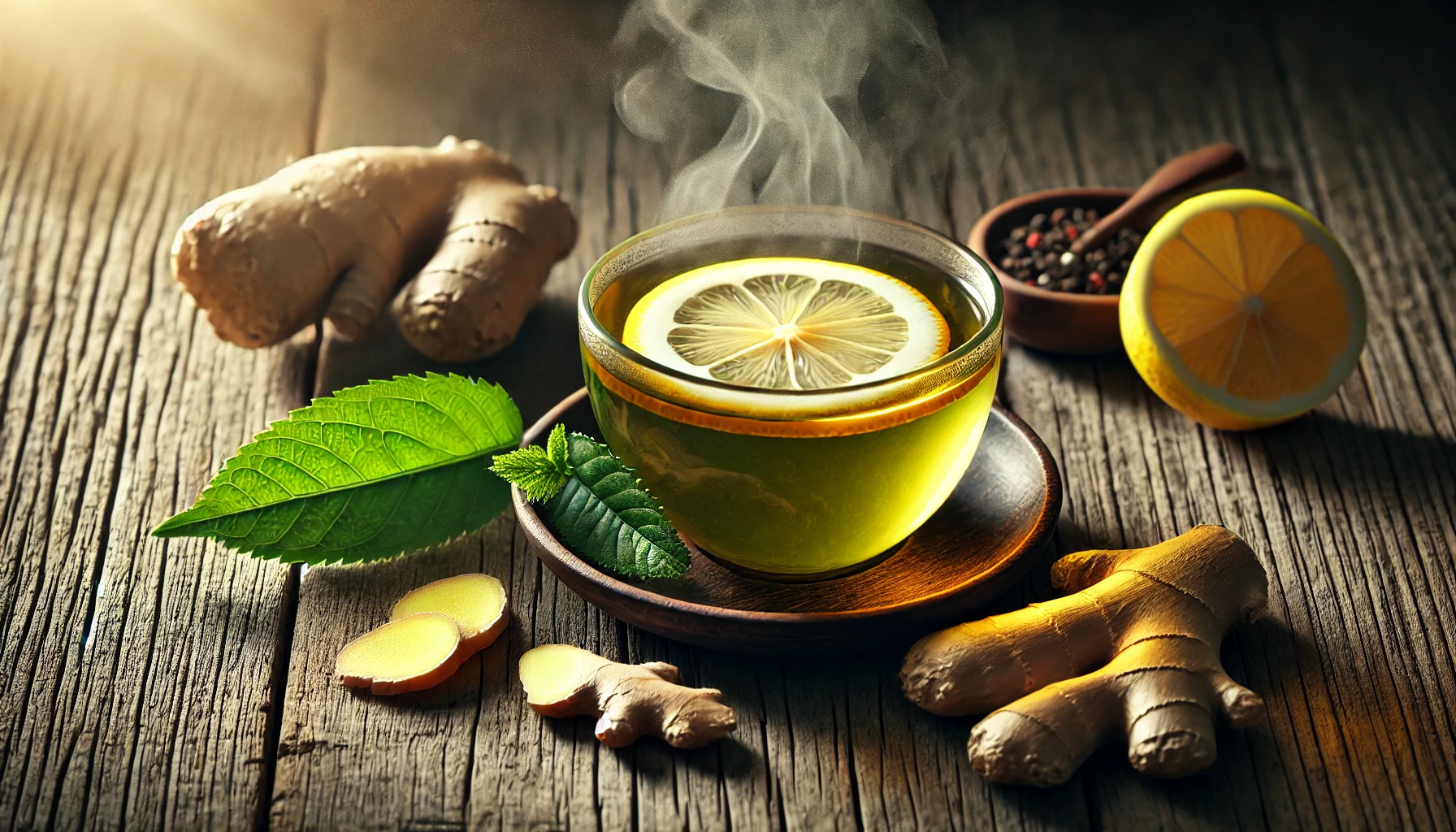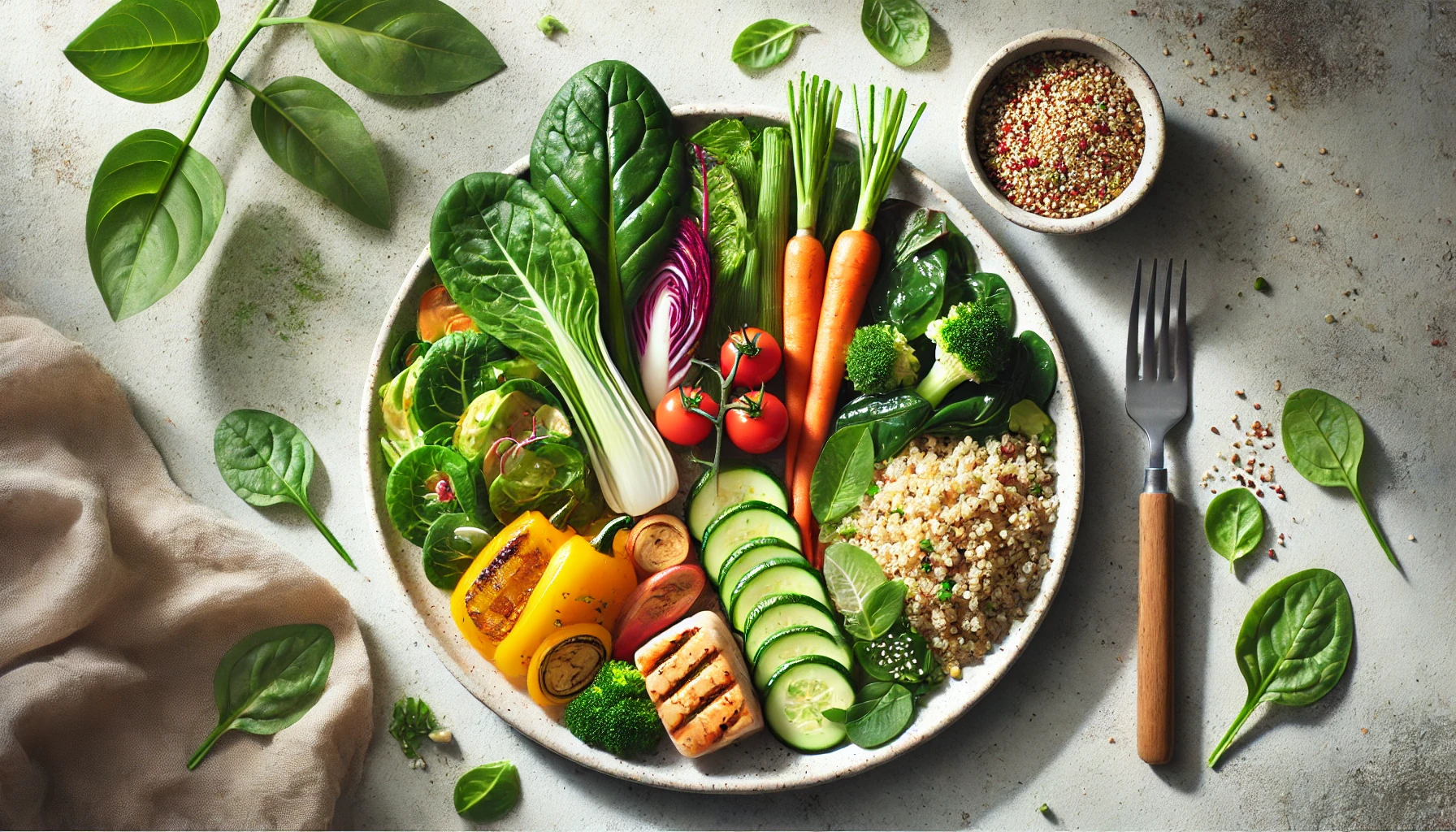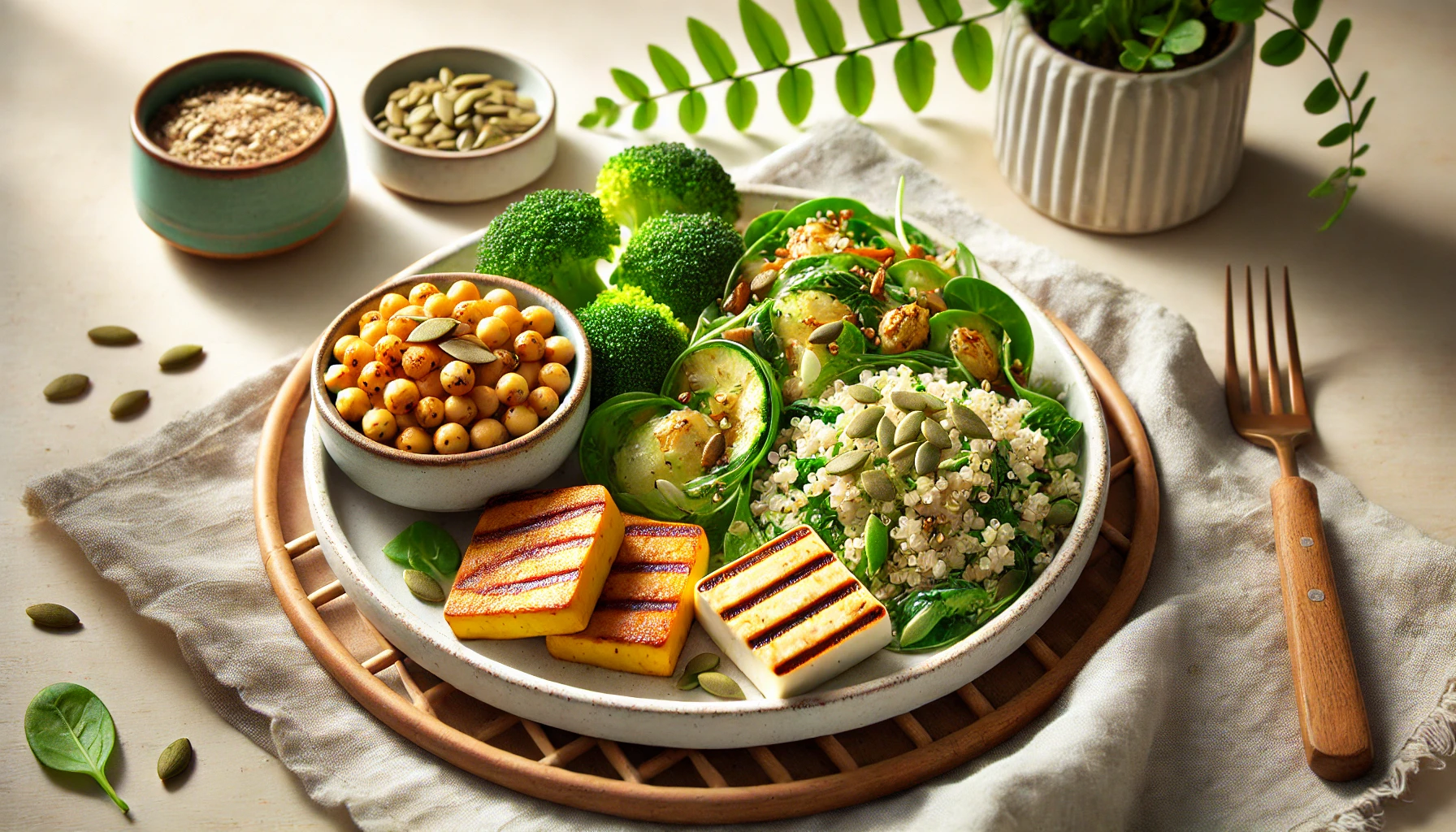What does organic mean? Discover the true meaning of organic across agriculture, chemistry, marketing, business, and lifestyle. Learn expert insights, benefits, challenges, and tips for identifying organic products.
Introduction
The word organic has become a buzzword over the last few decades. From organic food to organic marketing and even organic growth, the term is used across industries. But what does organic actually mean?
In this in-depth guide, we will break down the true meaning of organic, explore its different contexts, highlight expert opinions, and provide a helpful table to summarize the different meanings across industries.
What Does Organic Mean? The Basic Definition
At its core, organic refers to something derived from living matter. It can also mean something produced without the use of synthetic chemicals, artificial additives, or human intervention. Depending on the context — whether we’re talking about agriculture, chemistry, business, or digital marketing — the meaning shifts slightly.
Quick Definition Table
| Context | Meaning |
|---|---|
| Agriculture | Grown without synthetic pesticides, fertilizers, or GMOs |
| Chemistry | Relating to carbon-based compounds derived from living organisms |
| Marketing | Natural, unpaid growth through authentic methods (word-of-mouth, social shares) |
| Business Growth | Expansion without external funding or inorganic acquisitions |
| Lifestyle | Focused on natural products, environmental sustainability, and minimal processing |
Organic in Agriculture
What Does Organic Farming Mean?
Organic farming refers to growing crops and raising animals in a way that preserves natural resources and promotes ecological balance. It avoids synthetic fertilizers, pesticides, and genetically modified organisms (GMOs). Instead, organic farmers rely on techniques like crop rotation, composting, and biological pest control.
Principles of Organic Farming
- Soil Health: Build and maintain fertile soil using natural processes.
- Biodiversity: Promote variety in plants, animals, and insects to create a balanced ecosystem.
- Animal Welfare: Raise animals in humane conditions with access to outdoors and organic feed.
- Avoid Synthetic Inputs: No synthetic fertilizers, pesticides, herbicides, antibiotics, or hormones.
Organic Certification
To label food as organic, farmers must meet strict guidelines set by national organic programs, such as:
- USDA Organic (United States)
- EU Organic (European Union)
- JAS Organic (Japan)
Expert Opinion: Dr. Samantha Green, Agricultural Scientist
“Organic farming isn’t just about avoiding chemicals. It’s a holistic system where the farm functions like an ecosystem, balancing crops, animals, and soil health for long-term sustainability.”
Organic in Chemistry
What Is Organic Chemistry?
In chemistry, organic refers to carbon-based compounds, especially those found in living organisms. Organic chemistry studies the structure, properties, and reactions of carbon-containing compounds.
Examples of Organic Compounds
- Carbohydrates
- Proteins
- Lipids (Fats)
- Nucleic Acids (DNA & RNA)
Organic vs Inorganic Chemistry
| Feature | Organic Chemistry | Inorganic Chemistry |
|---|---|---|
| Primary Element | Carbon | Metals, salts, minerals |
| Examples | Glucose, methane, proteins | Water, salts, metals |
| Origin | Often from living organisms | Often from non-living sources |
Expert Opinion: Dr. Raj Patel, Organic Chemist
“Organic chemistry is essential to understanding life itself. From the food we eat to the medicines we take, organic compounds are central to modern science.”
Organic in Marketing
What Is Organic Marketing?
In the world of digital marketing, organic refers to natural, unpaid methods of attracting customers. This contrasts with paid advertising, where you buy attention through ads.
Examples of Organic Marketing
- Search Engine Optimization (SEO)
- Social Media Posts (unpaid)
- Word-of-Mouth Referrals
- Blog Articles (like this one)
Benefits of Organic Marketing
- Cost-Effective: No direct payment for visibility.
- Trust-Building: Audiences trust organic content more than ads.
- Long-Term Results: Quality organic content can rank for years.
SEO and Organic Search
Search engines, like Google, rank organic results based on relevance, content quality, and user experience — not paid bids.
Expert Opinion: Maria Lopez, Digital Marketing Strategist
“Organic marketing is about playing the long game. You invest in content, relationships, and value rather than quick hits from paid ads.”
Organic Growth in Business
What Does Organic Growth Mean?
In business, organic growth refers to growth achieved internally — through increased sales, improved processes, or innovation — rather than through mergers, acquisitions, or external funding.
Key Features of Organic Growth
- Self-Funded: No external investment.
- Sustainable: Built on strong customer relationships.
- Process Improvement: Focused on efficiency and innovation.
Organic vs Inorganic Growth
| Factor | Organic Growth | Inorganic Growth |
|---|---|---|
| Source | Internal sales, product expansion | Mergers, acquisitions |
| Speed | Slower but sustainable | Faster but riskier |
| Risk | Lower | Higher |
Expert Opinion: Robert Chen, Business Consultant
“Organic growth builds resilient businesses. While acquisitions can offer quick scale, organic growth proves your business model is sound and your product fits the market.”
Organic in Lifestyle and Wellness
What Does Organic Mean in Lifestyle?
For individuals, organic living refers to choosing natural products, minimizing chemicals, and prioritizing sustainability. This can apply to:
- Food: Organic fruits, vegetables, dairy, and meat.
- Beauty Products: Organic skincare and cosmetics.
- Home Goods: Organic cotton textiles, cleaning products.
Why People Choose Organic
- Health Benefits: Avoiding synthetic pesticides and preservatives.
- Environmental Concerns: Supporting eco-friendly farming.
- Ethical Reasons: Promoting better treatment of animals and farmers.
Expert Opinion: Dr. Aisha Khan, Holistic Health Expert
“Organic living is a mindset shift. It’s about consciously choosing products and habits that nurture your health and the planet’s well-being.”
Benefits and Challenges of Organic
Benefits
| Benefit | Description |
|---|---|
| Healthier Products | Fewer synthetic chemicals and additives in food and goods. |
| Environmental Impact | Supports soil health, water conservation, and biodiversity. |
| Ethical Production | Promotes fair wages, animal welfare, and sustainable farming. |
Challenges
| Challenge | Description |
|---|---|
| Higher Costs | Organic farming and certification raise prices. |
| Availability | Organic options are still limited in some areas. |
| Mislabeling Concerns | Some products misuse the organic label. |
How to Identify Organic Products
Organic Labels to Look For
| Label | Region | Key Standard |
|---|---|---|
| USDA Organic | United States | 95%+ organic ingredients |
| EU Organic | European Union | Entire supply chain follows organic rules |
| Soil Association | United Kingdom | High organic and environmental standards |
Tips for Consumers
- Read the Ingredients: Even “organic” products can contain additives.
- Research Brands: Some brands are more transparent than others.
- Support Local: Farmers’ markets often offer high-quality organic produce.
Conclusion: Organic Means More Than You Think
The word organic might seem straightforward, but its meaning changes significantly based on context. Whether it’s food, chemistry, marketing, business, or lifestyle, organic always emphasizes natural processes, minimal human interference, and sustainability.
By understanding these different meanings, you can make better choices — whether you’re shopping for groceries, running a business, or building your brand online.
Summary Table: Meanings of Organic Across Fields
| Field | Meaning | Key Benefit |
|---|---|---|
| Agriculture | Natural farming without synthetic chemicals | Healthier food, better for environment |
| Chemistry | Carbon-based compounds | Foundation of life and materials |
| Marketing | Natural audience growth without paid ads | Cost-effective and trusted |
| Business | Internal growth through sales and innovation | Sustainable and resilient |
| Lifestyle | Choosing natural, eco-friendly products | Personal health and planetary wellness |
Frequently Asked Questions (FAQs)
1. What does the term “organic” mean in food and agriculture?
Organic in food and agriculture refers to crops and livestock grown without synthetic pesticides, fertilizers, genetically modified organisms (GMOs), or artificial additives. Organic farming promotes soil health, biodiversity, and sustainable practices.
2. Is organic food healthier than conventional food?
Many experts believe that organic food may contain fewer pesticide residues and more nutrients (like antioxidants) compared to conventionally grown food. However, the health benefits can vary based on the specific product and how it’s grown.
3. What’s the difference between organic and natural?
Organic is a regulated term with strict guidelines for farming and processing, while natural generally means minimally processed but does not have standardized certification requirements. Organic is typically considered more reliable in terms of standards.
4. What does organic mean in business?
In business, organic growth refers to business expansion through internal efforts, like increasing sales, launching new products, or improving customer retention — without acquisitions or mergers.
5. What is organic marketing?
Organic marketing refers to unpaid efforts to attract customers naturally, such as SEO, social media posts, word-of-mouth referrals, and high-quality content. It contrasts with paid marketing, like ads and sponsored content.
6. How is organic chemistry different from inorganic chemistry?
Organic chemistry focuses on carbon-based compounds (often from living organisms), while inorganic chemistry deals with non-carbon compounds, such as minerals, metals, and salts.
7. How can I tell if a product is truly organic?
Look for certification labels such as:
- USDA Organic (United States)
- EU Organic (European Union)
- Soil Association (UK)
- JAS Organic (Japan)
Also, check the ingredient list and research the brand’s transparency.
8. Is organic always better for the environment?
Generally, organic farming is better for soil health, water conservation, and biodiversity. However, it can have lower yields than conventional farming, which means more land may be needed to produce the same amount of food. Sustainability depends on the crop type, region, and farming techniques.
9. Does organic mean pesticide-free?
Not entirely. Organic farming allows some natural pesticides derived from minerals, plants, or microbes, but prohibits synthetic chemical pesticides.
10. Is organic certification worth it for small farmers?
It depends. Organic certification can open premium pricing opportunities and attract eco-conscious customers, but the process can be costly and time-consuming. Many small farmers adopt organic practices without official certification and market directly to consumers at farmers’ markets.
Final Thought from Experts
“Organic is not a trend — it’s a return to nature, a conscious commitment to working with, not against, natural systems.” — Dr. Samantha Green
